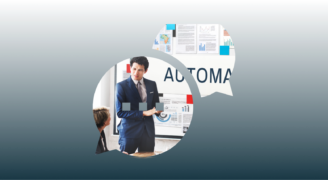As turbulence present, businesses are turning to implement mechanisms to manage remote employees, respond to supply chain delays, increase data visibility, and agility. Rather than adding complexities and patchwork software to an outdated system, cloud-based ERP technology permits companies to respond to the developments and trends of the competitive business world.
Companies operating on outdated technologies are struggling with expansion, increasing inefficiency, and manual processing throughout the business. Real-time analysis, Key performance indicators, and reports are essential for businesses to make the right decisions.
Benefits of an ERP System
Companies utilize ERP systems to completely automate their business processes with an integrated system. ERP is used by a variety of industries, including healthcare, non-profit groups, manufacturers, and hospitality. The organization needs to control its employees, customers and inventory to reap these benefits from an ERP system.
ERP as an integrated system saves all the data in one place and shares it with the other employees of different departments in an organization easily. Additionally, all the data are configured, analyzed, and reported. ERP as a single system comprises inventory management, human resources management, accounting services, financial management, and customer relationship management.
How ERP Enhances Business Growth in 2022
Lower IT Costs
All the equipment required for the work is obtained from a single system. In addition, the integrated system helps in less consumption of time. Users no longer have to seek information on separate systems if they implement ERP in their organization. Additionally, it eliminates the need to train users on multiple systems, and helps in saving money. It also mitigates the money spent on training but also decreases associated logistics effort. You only need to communicate with one person, Instead of organizing various training sessions with multiple vendors.
Improved Collaboration
The characteristics of an ERP application differ according to the program you use, but in common, all systems enhance cooperation in some way. As stated, a centralized database is the fundamental part of ERP oneness. With this database, you put forward a single source of truth for your company to work. This brings down the errors caused by operating with inappropriate data.
Furthermore, as the members have admittance to company-wide data, a central database does not detain or append anything throughout projects. Also, all data is stored, shared and accessed by a single system, therefore no need to combine data stored in different systems. The accuracy, completeness, and data security doesn't matter. One can avoid human errors effortlessly with the help of ERP.
Make Data-Driven Business Decisions with Better Analytics
The analysis and reporting enhances with the aid of a central database. Because, an ERP records and stores all data user input. As long as your vendor comes up with powerful performance, ERP software creates different reports for your team quickly and effortlessly as compared to manual processes.
Almost all ERP solutions supply a customizable dashboard, hence the superiors can view reports as soon as they log into the system. These include everything from income and expenditure statements to custom KPIs(Key Performance Indicator) that provide intuition into certain functions. The accessibility to these reports enables your team to make greater decisions faster. There is no need to depend on your IT staff to develop the essential reports. Reports come with access levels, ensuring that only relevant employees view valuable company data.
Improved Productivity
It is tedious and time consuming to complete manual tasks like monitoring inventory levels, preparing reports, processing orders, and tracking timesheets and in addition there are high chances of human error.
ERP removes dispensable tasks such as database data entry within the software and permits the system to perform broad calculations instantly. This saves more time for the team members and improves your ROI in terms of workers. This results in better productivity, efficiency, and remuneration of your business.
Offer a Personalized Customer Experience with Marketing Automation
In this digital era, people prefer the internet for advice on outfits, foods, and lifestyle. Customer comments are more influential as the consumers trust more on online reviews.
The better way to enhance customer satisfaction is to supply customer-centric products and services. ERP offers this in different ways. First, most ERPs are made with a Customer Relationship Management (CRM) tool or one that is easily integrated. With ERP, your CRM has access to data from all business operations.
Along with contact information, an integrated CRM exhibits information such as order history and billing information. This allows your team to view more comprehensively to figure out customer’s requirements. Improving customer visibility benefits you to design your sales schemes for better lead generation.
Simplified Compliance and Risk Management
As companies develop and expand their business in more countries, it will be difficult to follow each and every regulation inflicted upon them. Even local companies worry about several environmental, information security, and human resource restrictions.
Incidentally , all ERP is designed with this in mind and supports you to sustain compliance at every level. Additionally, ERP software offers inbuilt auditing tools to record chemical usage and tax conditions. This makes it easy to develop reports and send them to the concerning governing body.
Additionally, ERP often supplies tools for risk management. The complete financial management enhances the dependability and accuracy of this solution as there is less chance of errors during accounting. Prediction tools allow users to foretell demand, labor, and budget events. Knowing this, one can create more secure budgets, schedules, and product development plans.
Improved Inventory Monitoring
One of the significant challenges for developing companies is to track their growing volume. Tracking goods at each phase over the distribution network is by using ERP barcoding, RFID tags, and serial numbers.
These tools permit one to trace inventory levels in separate warehouses, which items are in motion, and which items are on the shelves arranged for customers. Increased warehouse optimization corrects the pick, pack, and ship process, and removes all guesswork.
Inventory monitoring also boosts reporting as tracking technology supplies more precise numbers. Users can construct custom KPIs, which work faster and show more demand. With more accuracy offered by ERP, warehouse managers can access live data in their inventory to make more precise business decisions.
Improved Production Planning and Resource Management
Along with managing inventory, ERP also manages manufacturing. Provides insight into all manufacturing operations, including the shop floor. It allows users to develop production schedules, equipment, and work to increase efficiency.
Additionally, the ERP manages Bill of Materials (BOM) and fixed assets. With this software, users can create and edit BOMs while tracing all conventional changes. Fixed asset management permits users to plan device maintenance to decrease unplanned working hours, enhance profitability, and improve supply chain relationships.
Transition to Moving Your Business Online
There is a high increase in online users nowadays. More people have started to purchase and find various services online. So moving your business online is an essential step to withstand this digital world scenario. Along with this, your business must also follow strong SEO and digital strategies to make your business on top of Google ranking.
ERP systems completely help to manage your eCommerce business and online operations. In addition, from inventory management to shipping, an ERP manages all your business processes and enhances the efficiency and accuracy of all your online business activities.
NetSuite- World’s #1 Cloud ERP
NetSuite is the world's # 1 cloud-based software that enables companies to manage core business processes from ERP, finance, customer relationship management, eCommerce, human resource management, professional services automation, and inventory.
Wish to enhance the efficiency of your business? Implement NetSuite with the help of a certified Oracle NetSuite Alliance Partner like Jobin & Jismi to enjoy all the benefits of a Cloud ERP system. Connect with us for more information.



